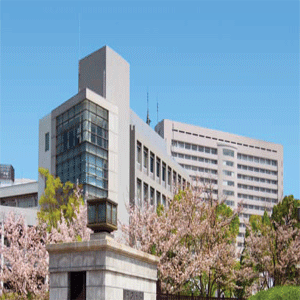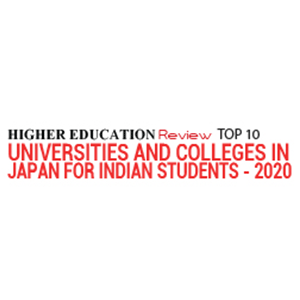In Japan Osaka University is reserving the heritage education of Kaitokudo (Edoperiod School founded in 1724 for Locals) and Tekijuku (Ogata Koan founded School of Rangaku for Samurai in 1838). Regarded as one of the best and prestigious universities in Japan, Osaka University holds various topnotch rankings in international and national podium.
The beginning of the modern university is supposed to be the founding of the Osaka Prefectural Medical School in Osaka City in 1869. It was later known as the Osaka Prefectural Medical College and gained the university status by University Ordinance in 1919. With the merging of the medical college, the later years witnessed the formation of Osaka Imperial University in 1931, which was the sixth imperial university in the country.
Enthralling its belief that high school curriculum and university curriculum integration leads to improvement in education quality, in the next two years, Osaka Technical College was incepted for imparting engineering education by School of Engineering, and the university revised its name to Osaka University in 1947.
Apart from upholding the academic heritage, Osaka University’s School of Human Sciences on its Suita Campus conducts four-year undergraduate degree program in English-medium. Imparting from 2011, the study areas include sociology, anthropology, philosophy, education, behavioral sciences, psychology, human development and area studies. In a competitive qualification mode and global benchmark standard, the degree course focuses in the students’ development for complex problem-solving and their approach for research and education in interdisciplinary and international environment.
Headed by the current director of the program Professor Beverley Yamamoto (UNESCO Chair – Global Health and Education), the Graduate School of Letters of Osaka University conducts Graduate Programs for Advanced Interdisciplinary Studies in English-medium program in Global Japanese Studies.
A plethora of academic collaborations grant Osaka University for exchange programs between Osaka University schools and colleges/universities of different countries without any additional academic payments. In this holistic campus students learn in an encouraging, supportive and sharing educative process for becoming excellent humans and brilliant professionals.
The beginning of the modern university is supposed to be the founding of the Osaka Prefectural Medical School in Osaka City in 1869. It was later known as the Osaka Prefectural Medical College and gained the university status by University Ordinance in 1919. With the merging of the medical college, the later years witnessed the formation of Osaka Imperial University in 1931, which was the sixth imperial university in the country.
Enthralling its belief that high school curriculum and university curriculum integration leads to improvement in education quality, in the next two years, Osaka Technical College was incepted for imparting engineering education by School of Engineering, and the university revised its name to Osaka University in 1947.
Apart from upholding the academic heritage, Osaka University’s School of Human Sciences on its Suita Campus conducts four-year undergraduate degree program in English-medium. Imparting from 2011, the study areas include sociology, anthropology, philosophy, education, behavioral sciences, psychology, human development and area studies. In a competitive qualification mode and global benchmark standard, the degree course focuses in the students’ development for complex problem-solving and their approach for research and education in interdisciplinary and international environment.
Headed by the current director of the program Professor Beverley Yamamoto (UNESCO Chair – Global Health and Education), the Graduate School of Letters of Osaka University conducts Graduate Programs for Advanced Interdisciplinary Studies in English-medium program in Global Japanese Studies.
A plethora of academic collaborations grant Osaka University for exchange programs between Osaka University schools and colleges/universities of different countries without any additional academic payments. In this holistic campus students learn in an encouraging, supportive and sharing educative process for becoming excellent humans and brilliant professionals.


